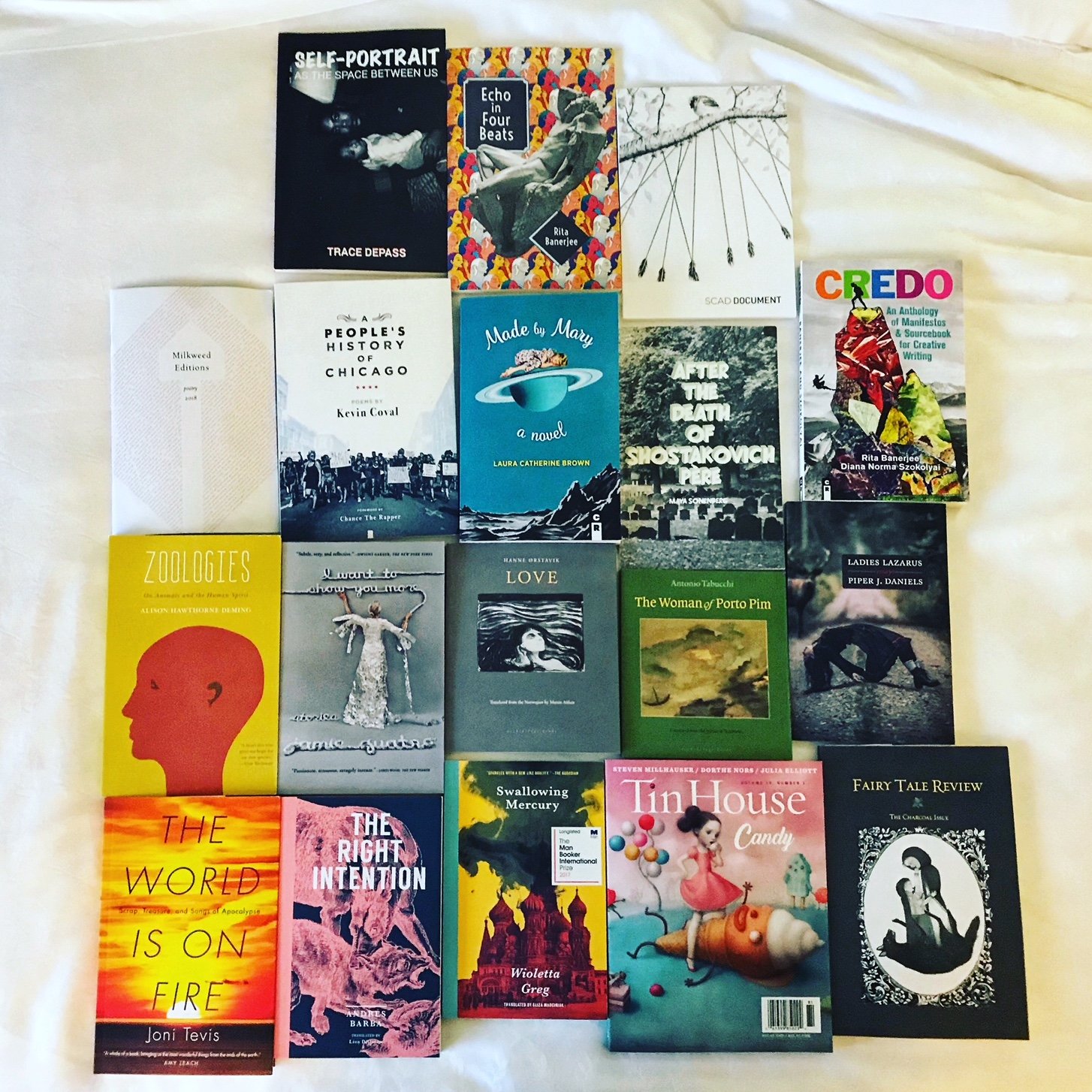 In my last post I promised blood. Well, I'll just say I slid my boot off Friday night and it was like I was one of Cinderella's stepsisters. I'm still limping. On to day 3!What is a better breakfast than a leftover Cuban sandwich? Leftover fried oysters. Just kidding! The Cuban sandwich was much better. Day 3 was the best because Michael got a one-day pass and we got to roam the book fair together."The Worst Writing Advice I Ever Got" is an irresistible title, so of course we wrenched ourselves away from the book fair for it. Here, without narrative, a fun grab-bag of quotes:
In my last post I promised blood. Well, I'll just say I slid my boot off Friday night and it was like I was one of Cinderella's stepsisters. I'm still limping. On to day 3!What is a better breakfast than a leftover Cuban sandwich? Leftover fried oysters. Just kidding! The Cuban sandwich was much better. Day 3 was the best because Michael got a one-day pass and we got to roam the book fair together."The Worst Writing Advice I Ever Got" is an irresistible title, so of course we wrenched ourselves away from the book fair for it. Here, without narrative, a fun grab-bag of quotes:
- "Creative writing aphorisms are as useful as Dr. Phil." -Chris Abani
- "Your book won't save you. It's just something you're going to do because you're nuts." -Min Jin Lee
- "How do I handle writer's block? I don't write." -Ada Limón
I appreciated Limón's story of navigating two groups of people: those who roll their eyes at "abuelita poems" and those who say, "where's your abuelita poem?" And Melissa Stein's remark that dread may be a sign that advice you've been given may not be for you, anxiety might mean it's worth exploring the challenge, and excitement is obviously a good sign. Abani noted that "Craft advice is only important if you're asking questions. What are you trying to do?"We stuck around for a reading and conversation between Min Jin Lee and Sigrid Nunez. Nunez on writing about sex: "The vocabulary is not there. It's either coy, clinical, or filthy, none of which do justice to human sexuality." At the book signing, Lee called Michael and me adorable. So that happened.My attention span went out the door by mid-afternoon, so it was off to the hotel bar for wine and fried calamari! Naturally, someone in panda suit wandered in. 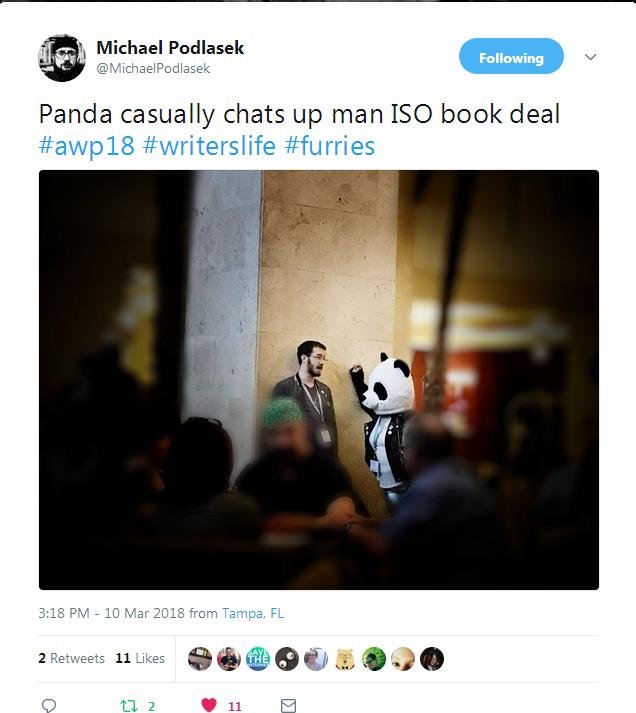 Next year in Portland! Maybe Seattleites can get some party buses organized...
Next year in Portland! Maybe Seattleites can get some party buses organized...

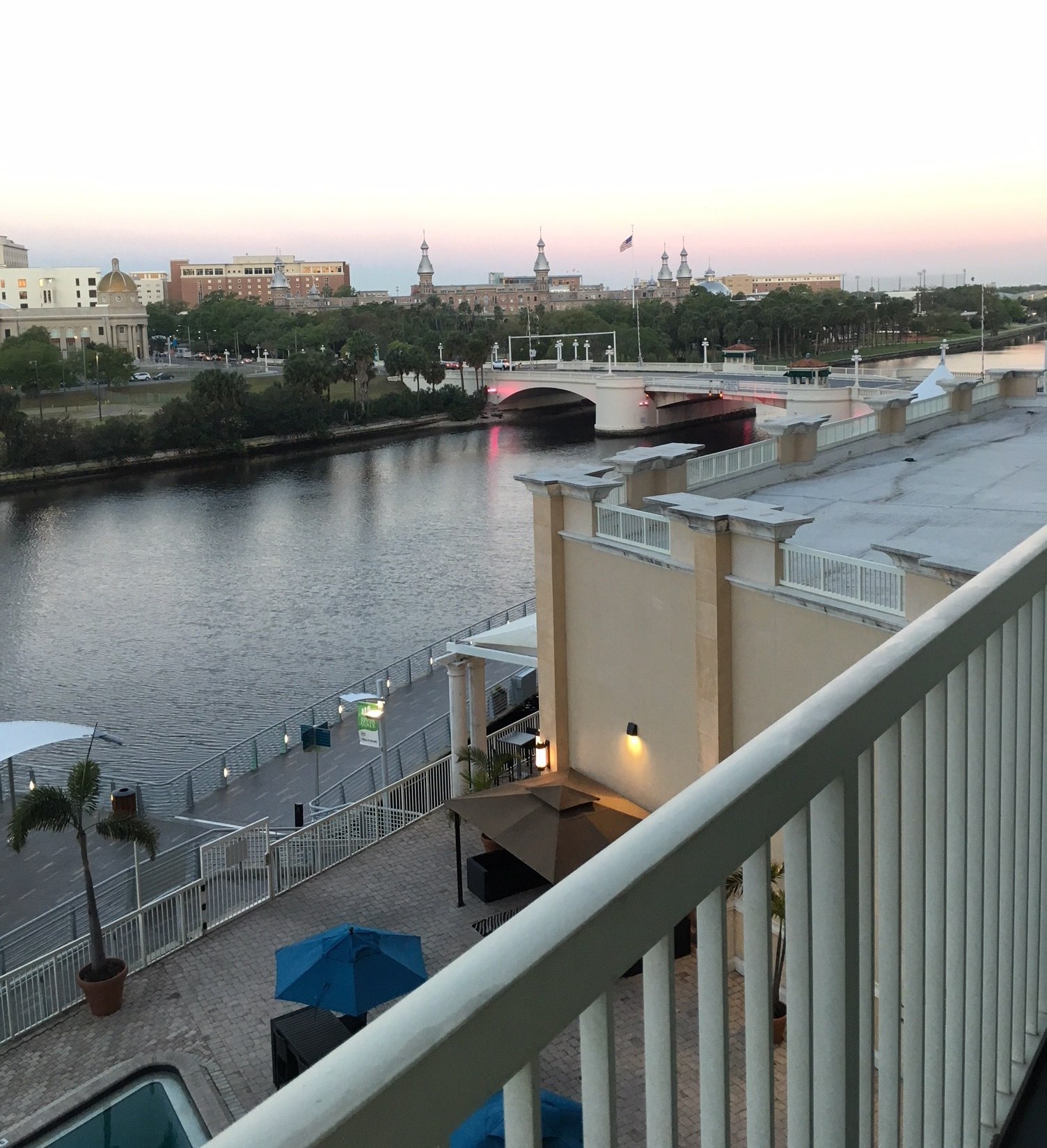 The Friday of AWP is always the best day. The nervous energy of Thursday has dissipated, and the inevitable Saturday flu epidemic has not yet emerged. I woke early to respond to student stories and breakfasted on a leftover Cuban sandwich, wondering if it would make me barf later. Reader, it did not! A fortifying start.Alan Sincic, the fantastic Orlando-based writer who was
The Friday of AWP is always the best day. The nervous energy of Thursday has dissipated, and the inevitable Saturday flu epidemic has not yet emerged. I woke early to respond to student stories and breakfasted on a leftover Cuban sandwich, wondering if it would make me barf later. Reader, it did not! A fortifying start.Alan Sincic, the fantastic Orlando-based writer who was 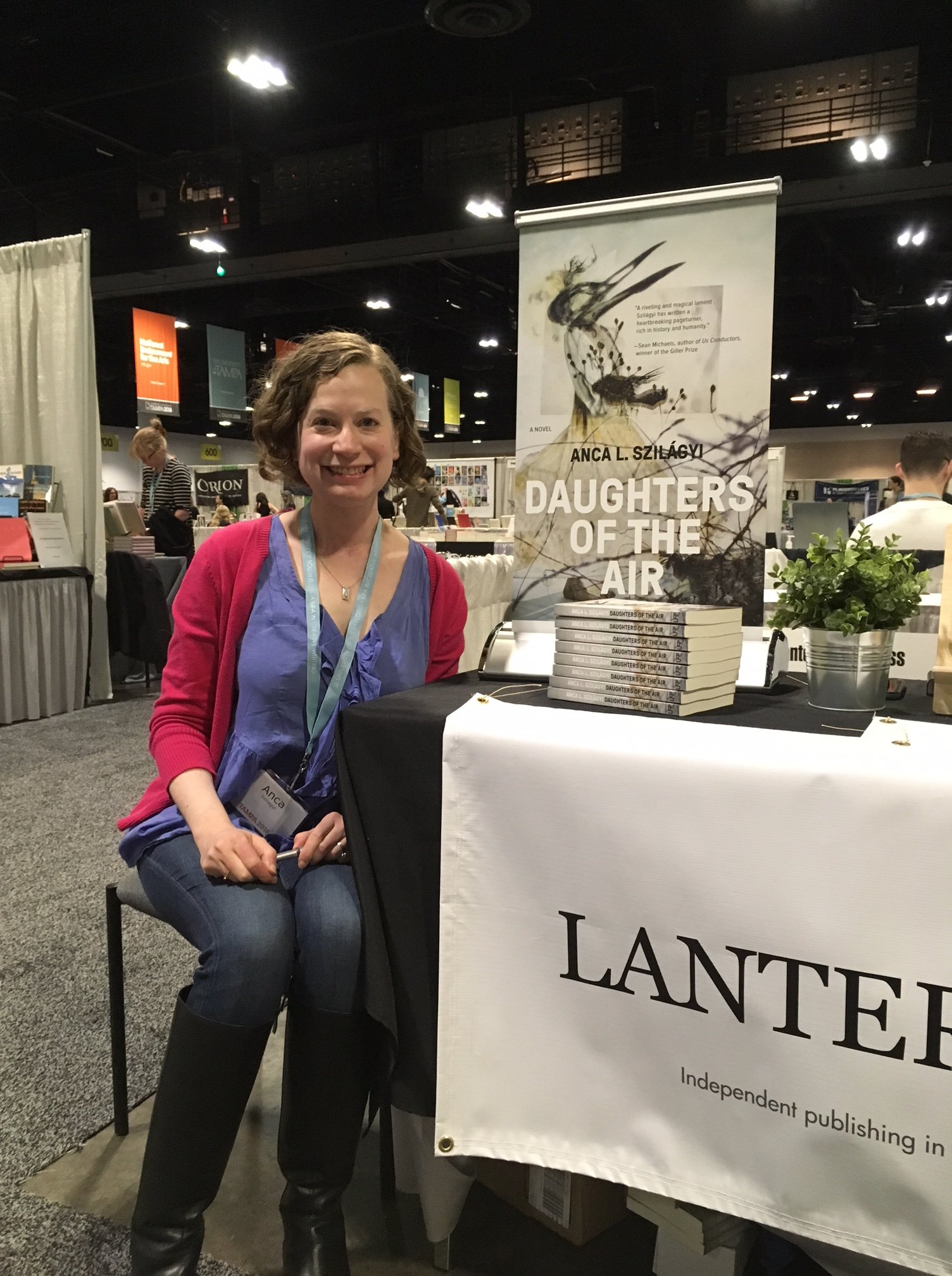 I ducked out early to get to my book signing at the
I ducked out early to get to my book signing at the 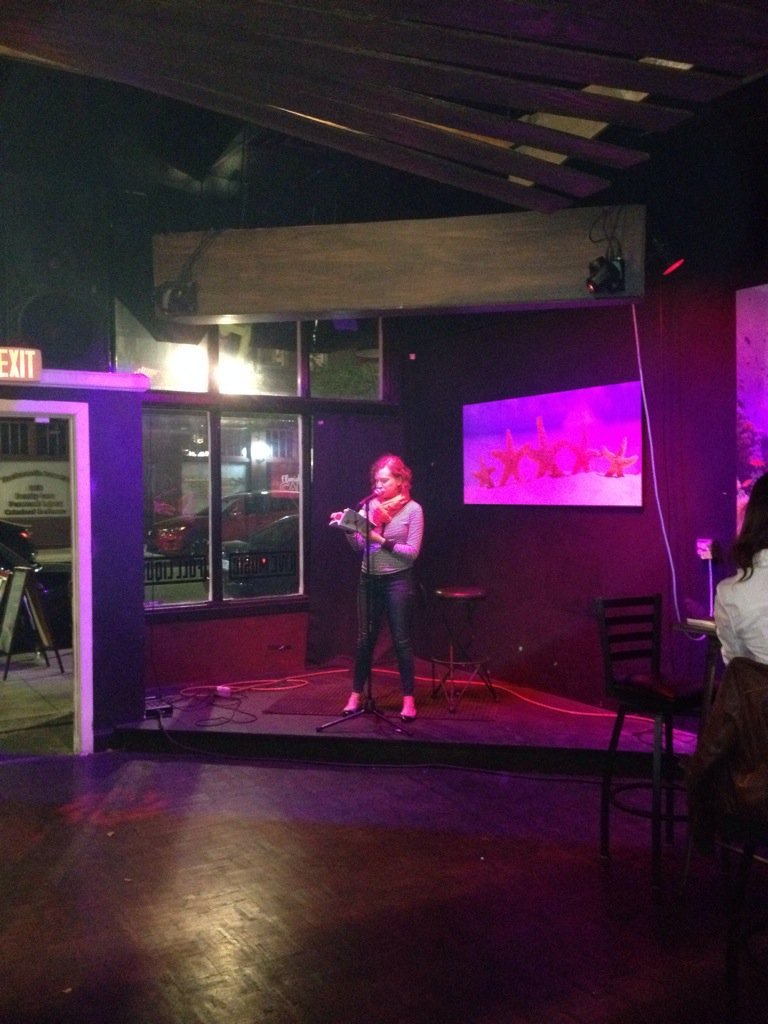
 I'm back home after a whirlwind book tour that ended with AWP in Tampa. Michael and I drove up from Delray Beach through the Everglades, hoping to spot alligators, and though there were none, pelicans abounded.We arrived in time for me to catch one panel Thursday afternoon, "
I'm back home after a whirlwind book tour that ended with AWP in Tampa. Michael and I drove up from Delray Beach through the Everglades, hoping to spot alligators, and though there were none, pelicans abounded.We arrived in time for me to catch one panel Thursday afternoon, "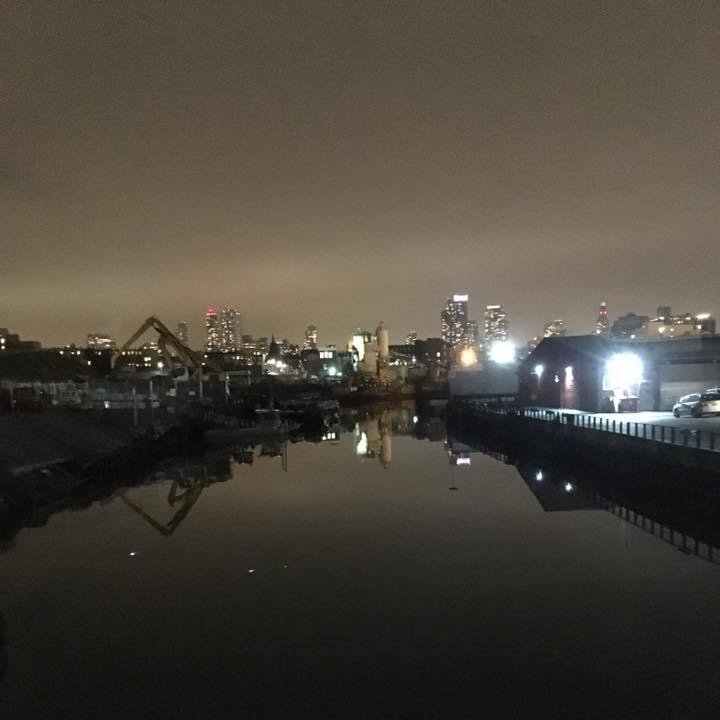 It's my birthday, and I'm home in Brooklyn. Today is full of treats. Mimosas and chocolate croissants with my family (and bagels, but I've been gorging on bagels since Saturday and have nearly reached my bagel limit), a stroll by Prospect Park, and a
It's my birthday, and I'm home in Brooklyn. Today is full of treats. Mimosas and chocolate croissants with my family (and bagels, but I've been gorging on bagels since Saturday and have nearly reached my bagel limit), a stroll by Prospect Park, and a